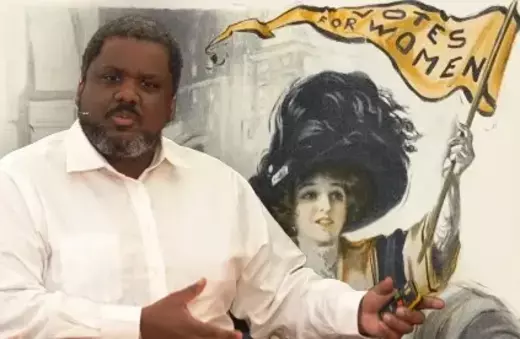Hollywood actresses’ testimonies against Harvey Weinstein unleashed a global storm against sexual harassment. Twitter reported just under a million #MeToo hashtag shares in 48 hours and Facebook counted more than 12 million reactions in 24 hours. This campaign also inspired British Prime Minister Theresa May to launch a battle against sexual abuse at Westminster – a step that might suggest that unlike many female leaders, May is using her power to help other women in politics.
In the midst of all these events, we invite you to take a step back and look at what feminism has achieved so far and where it’s going next, with our weekly curated briefing Philosophy Behind the News.
Let's start with the basics - the goals of feminism. In the debate After Equality, writer Beatrix Campbell argues we have yet to reach adequate equality between genders, while radical feminist activist Julie Bindel says equality is impossible and we should instead aim for liberation.
The #MeToo campaign, led by powerful Hollywood stars and hijacked by politicians in the UK Cabinet, appears to represent all women. But as some women have become CEOs and political leaders, other women have been left behind. In Sisters and Sisterhood, we debate whether we're swapping one inequality for another, or whether female care workers and CEOs are still on the same side.
Class isn't the only divide in contemporary feminism. While #MeToo has resonated with women around the world, Western feminism is often unpopular outside the West - in some countries being a feminist is even an insult. In our debate Rethinking Feminism, we ask how we can achieve gender equality in a globalised world. One first step, argues novelist Elif Shafak, is to think of many feminisms rather than one feminism, to allow for cultural diversity.
In The Crisis of Masculinity, British Labour MP Diane Abbott warns against the dangers of hypermasculinity and investigates whether two of the biggest political movements of the twentieth century, socialism and feminism, can help redefine masculinity and the family.
Although sexual abuse has been on feminists’ agenda for decades, the Harvey Weinstein scandal has generated a widely shared sense of urgency to do something about it only now. Can collective emotions generate social change? We ask in Strange Affects and Collective Emotions.
We revisit the debate Women and Conquest to find out whether the age of Tinder needs another sexual revolution. Has the sexual revolution empowered and liberated women, or are women now merely imitating masculine sexual behaviour?
Finally, as Hollywood’s success lies on the cult of celebrity – which is partly built on looks and sex-appeal - we ask a controversial question in our debate The Skin We’re In: is the use of body to sell as acceptable as the use of our brains? Or should we make it our political goal to eliminate ‘lookism’?
Image: Mihai Surdu






















Join the conversation